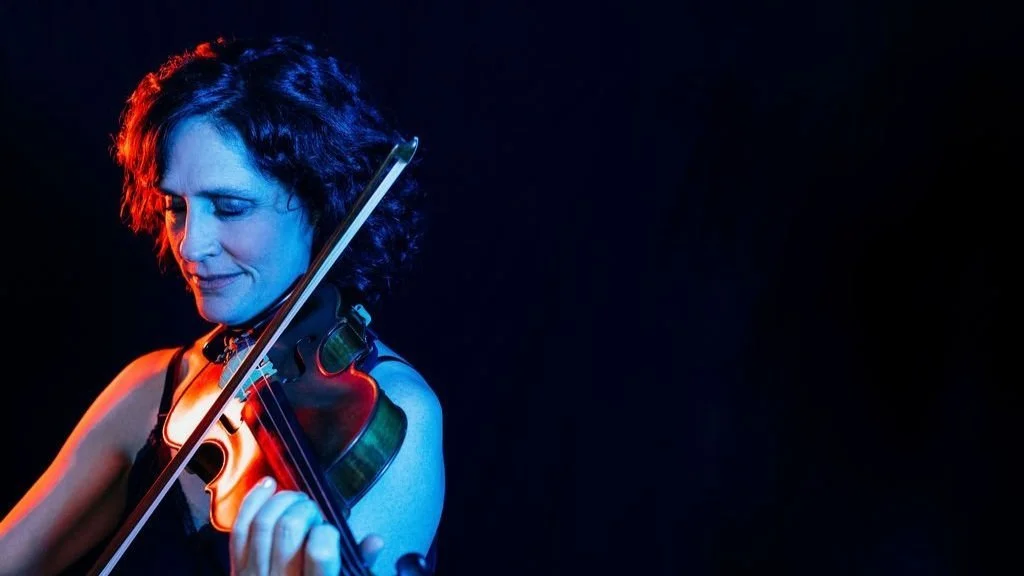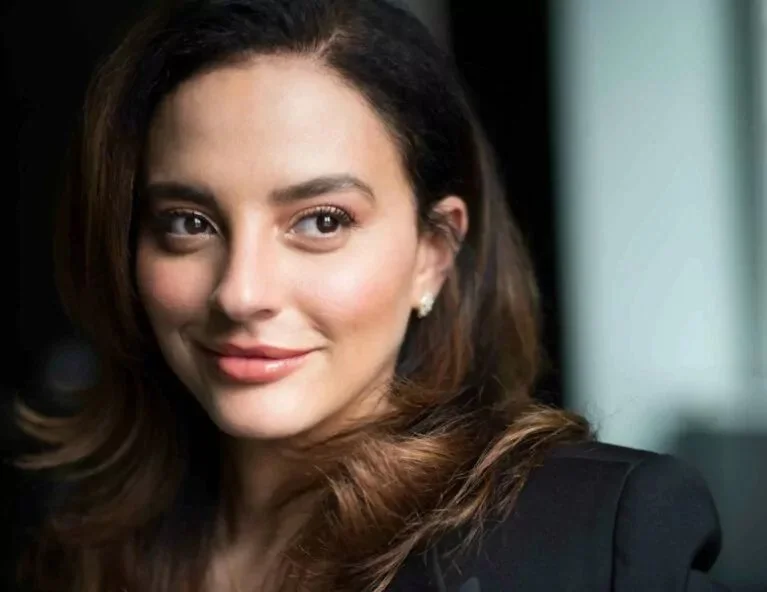Jenny Scheinman reflects on and rejoices in nature with All Species Parade
The California-based violinist and composer will perform tracks off her new double album in concert at BlueShore at CapU on October 21
Jenny Scheinman. Photo by Erika Kapin
Blueshore at CapU presents Jenny Scheinman on October 21 at 7:30 pm
SOME ARTISTS ARE reluctant to admit to their influences, being convinced of their own sui generis brilliance or else ashamed to admit that they are not entirely unique.
Jenny Scheinman is not one of them. In fact, on her new and quite wonderful double album, All Species Parade, the California-based violinist kicks things off by name-checking one of her favourite jazz composers, Ornette Coleman, on the delightfully eccentric jazz shuffle “Ornette Goes Home”. In turn, “Every Bear That Ever There Was” takes its title from a 1932 novelty hit, “The Teddy Bears’ Picnic", but also paraphrases Henry Mancini’s jaunty “Pink Panther Theme”.
Animal lovers flock together, it seems.
In the press material for All Species Parade, Scheinman also takes pains to point out that “Jaroujiji”, “The Sea Also Rises”, and the title track should be considered parts of a larger whole, “a Duke Ellington–inspired suite that clocks in at 20 minutes”.
Her honesty is welcome, and on being asked about her musical influences, Scheinman doesn’t stop with Ornette, Ellington, and Mancini.
“All of the influences that you mentioned are definitely there,” she says, happily enough. “I was listening to a lot of Ellingtonian suites and explicitly thinking ‘I’m trying to make something a little bigger than another album of songs, or another album of little pieces.’ I was trying to reflect and rejoice in something as big as biological diversity and nature. I wanted to… I don’t know. Access something bigger! Going from a song to a suite is a step towards grandeur a little bit. It was definitely true with Ellington; his various suites have a certain grandeur.
“The other influence that I didn’t mention that I was explicit about, especially with [guest guitarist] Julian Lage, were some of the acoustic guitar influences of my teens and early 20, like Django Reinhardt. Julian plays a little 4/4 Django Reinhardt thing in ‘Shutdown Stomp’. John McLaughlin’s acoustic guitar work, that was also a big influence on me in my early years, especially his band Shakti, with the wonderful violinist L. Shankar. Those albums are so great, and I definitely mentioned that to Julian in his role on ‘Jaroujiji’ and ‘Nocturne for 2020’. Those acoustic, steel-string, big-pick, muscular, fast, elaborate, passionate kind of guitar rhapsodies.”
Lage isn’t the only acclaimed guitarist to appear on All Species Parade. He and Scheinman are joined by the violinist’s long-time collaborator Bill Frisell and their friend Nels Cline, as well as bassist Tony Scherr, drummer Kenny Wollesen, and the remarkable and relatively unknown pianist Carmen Staaf. Staaf and Scherr will also be in the band when Scheinman plays the BlueShore Financial Centre for the Performing Arts on October 21, along with drummer Mark Ferber and guitarist Adam Ratner.
All Species Parade’s diverse and deliberately open-ended compositions allow all of these guests to shine. But, without a doubt, the biggest influence on Scheinman’s new tunes was where they was written: at her mother’s piano.
“My mother’s house, which is where I grew up, is the westernmost house in California; it’s very far west,” she explains. “It overlooks the mountains of Mattole and the ocean, and the view is spectacular. There are these two hills fairly spread apart, and this big expanse of beach, and the whole mouth of the Mattole River. One of the things I think gives that spot some power—that lends itself to writing, I should say—is that you can look really far. Being able to relax my eyes and see a very far distance, and the immensity of the ocean, and the length of the horizon is kind of a helpful way of getting myself into that out-of-body state that’s helpful for writing.
“Also if you’re trying to write things that last, that have some inherent gravitas or something that helps them speak through the decades or hopefully forever, that vista of the ocean and the horizon is kind of a helpful context. It takes your gaze out of yourself.”
Since returning to her native Humboldt County, California in 2012, after a long stay in New York City, Scheinman has turned that gaze increasingly toward the environment that now surrounds her. With Japanese photographer Ai Iwane, she recently completed a video installation about the return of wild salmon to the Mattole River, Coho Come Home, and All Species Parade continues that focus with tunes inspired by the pre-colonial inhabitants of the land, by the somewhat alarming grace of the sea lions that often join the local surfers, and by the regions’s occasionally fractious blend of loggers and environmentalists. Not all of the music is restful: “Shutdown Stomp” is a crazed jazz hoedown, and “The Cape” is surf music at its most extreme. But it all contributes to a portrait of a region that remains, in many ways, wild.
“There’s been tremendous environmental devastation here through the logging industry and the fishing industry,” Scheinman allows. “And there’s this history of… I don’t know if you can call it genocide, but this absolutely tragic demise of the Native population through slaughter, but also through a lot of disease, colonial diseases. There’s also the backdrop, for me, of writing this during Covid, or while the tragedy of Covid was still in my mind. There’s that context of getting up close to the experience of survival—a closeness to mortality.
“When we recorded the last tune on the album, ‘Nocturne for 2020’, I explained that it’s sort of an elegy for the victims of the virus, and by way of that for all extinct species, past and present,” she adds. “But into the mike, just before we recorded it, I said ‘Don’t play sad. Play fierce.’”
Mission accomplished, and beautifully. ![]()

























